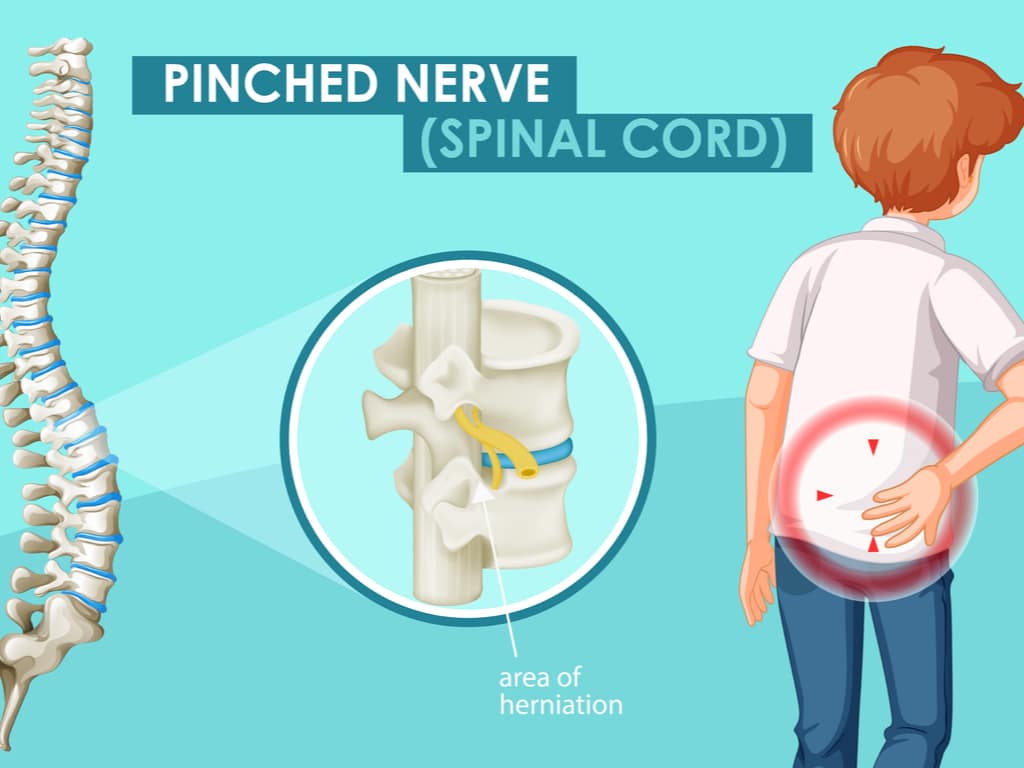
Weakness – You might start to feel that you cannot move around your shoulder and your arm that much anymore.


This might make it harder for you to go about with your usual tasks. The type of weakness that you might feel may only be felt through your arm, but at times, it may travel up to your arms. Numbness – If you start to feel that you cannot feel your arm and your shoulder that much anymore, this is maybe a sure sign of having a pinched nerve.There may be times when the pain seems to be shooting throughout other parts of your body, but there may also be times when the pain is just constant in one area. The type of pain that you might feel will vary. Pain –It has already been mentioned earlier that you will tend to feel pain on your shoulder blades.Here are some of the signs and symptoms that you have to watch out for: Sometimes, this symptom may be temporary while at times, it can last longer, and it will only go away when you do something about it. When you have a pinched nerve, there is a very big chance that when you do feel pain, you will feel a lot of pain. In severe cases, surgery may be needed to reduce pressure on the nerve and provide symptom relief.Signs and Symptoms of a Pinched Nerve in Shoulder Blade
HOW TO FIX A PINCHED NERVE PLUS
This can include physical therapy and exercise, plus medication for pain and swelling. However, our team also offers complete treatment options-from exercise and physical therapy to medication and, if needed, surgery.įor each patient, our goal is to deliver personalized care and the most effective, least invasive treatment possible. Weakness in the arms or legs also may result.įor many people, symptoms get better with time and go away without treatment other than rest and monitoring. A pinched nerve may cause tingling, numbness, or burning. Symptoms most commonly include a sharp pain in the neck, shoulder, arm, hand, or back. We help relieve the symptoms of a pinched nerve – also called a compressed nerve or a radiculopathy. The Stanford Medicine Spine Center delivers treatment for a pinched nerve, the condition where damage to a vertebral bone or disc in your neck puts pressure on a nearby nerve root. Personalized, Precise Care for a Pinched Nerve

Stanford Medicine Spine Center patients with pinched nerves also may have opportunities to participate in research studies of new treatment approaches not yet available anywhere else. If surgery is needed, we have experience with all procedures. We always emphasize the least invasive treatment approaches possible, such as physical therapy, special exercises, plus medication to relieve pain and swelling. Weakness in the arms also may result.įor many people, symptoms get better with time and go away. When they don’t, our team offers complete treatment options. We help relieve the symptoms of a pinched nerve-also called a compressed nerve or a radiculopathy (pronounced “rah-DIK-you-lop-uh-thee”). Symptoms most commonly include a sharp pain in the neck, shoulder, arm, hand, leg, or back. You may experience a pinched nerve when damage to a vertebral bone or disc in your neck or back puts pressure on a nearby nerve root. The doctors in the Stanford Medicine Spine Center have the experience needed to effectively treat a pinched nerve.


 0 kommentar(er)
0 kommentar(er)
